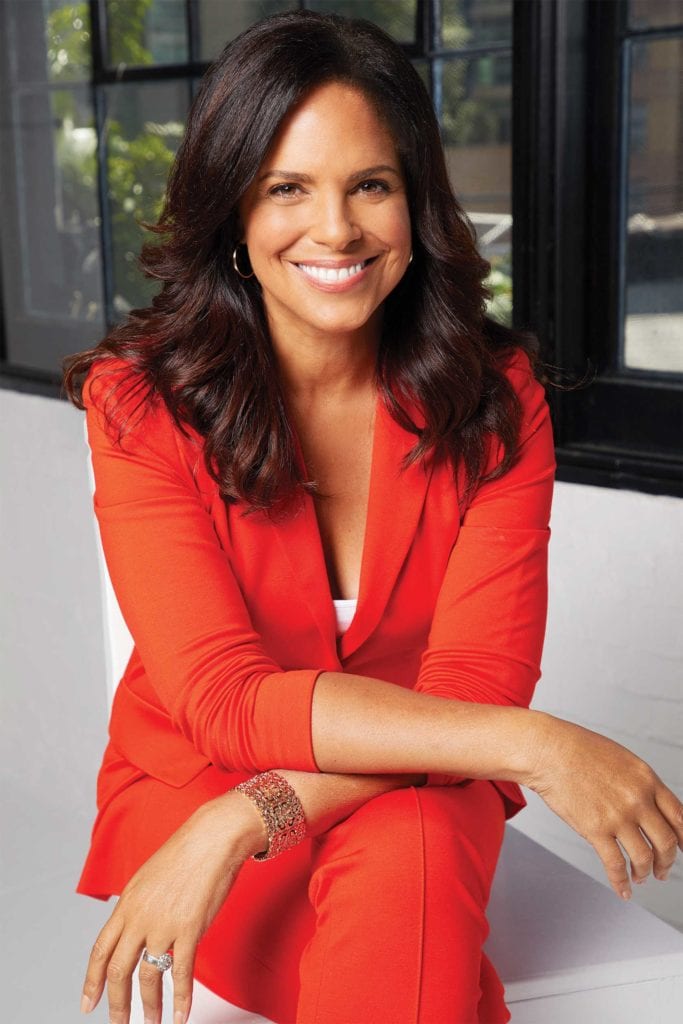Soledad O’Brien’s ‘Matter of Fact’ debuts on WCVB
Series brings new voices to racial justice dialogue

During a year in which each month introduces a new tragedy, candid conversation can be hard to find. One journalist has recognized this moment as the perfect time to televise the urgent conversation on racial justice, starting with all the ways bias affects our lives.
Soledad O’Brien’s new series, the “Matter of Fact Listening Tour,” tackles 2020’s issues by introducing new voices in the conversation and addresses the reality of our country’s troubles through open conversations with experts and everyday people. WCVB-TV launched the series on Oct. 8, along with the Hearst network of stations and newspapers.
Hearst has expanded accessibility of these conversations on race and justice by premiering them live on digital platforms as well. According to a press release, “‘The Hard Truth About Bias: Images and Reality’ is the first installment of the Matter of Fact Listening Tour, with a series of quarterly virtual forums to be presented in 2021.”
The first episode features Wes Moore, CEO of Robin Hood, an organization that fights poverty, and author of the New York Times Bestseller “The Other Wes Moore,” where he explores the lives of two men with the same name who had opposite outcomes in life due to access and opportunity.
When asked by O’Brien to explain how race and poverty intersect, he said, “Race is the most predictive indicator for life outcomes … Everything from income and wealth, to educational attainment, to maternal mortality.”
He noted that only 10% of all philanthropic donations go to organizations led by people of color.
“[Philanthropists] have to understand why their philanthropy is necessary in the first place. And it’s because we’re not addressing these bigger issues,” Moore said, adding that it’s important to listen to people who are closest to the problem.
Another segment in the 90-minute program featured six strangers, who watched viral videos of incidents where white people were being racially insensitive or accusing Black people of things they did not do, subsequently putting them in danger. While the videos played, the strangers spoke in a group chat anonymously. Afterward, they saw each other’s faces over video chat and discussed their thoughts.
While one white male said that it isn’t always about race, and that Black people discriminate too, two Black women and another Black man explained to him that racism is more than just discrimination — it’s about the power that white people hold over Black people’s lives.
O’Brien also invited former ESPN reporter Jemele Hill to discuss bias in the NFL, since she drew fire for her support of Colin Kaepernick’s kneeling protest. O’Brien noted that women like Hill are often left out of the conversation on racial justice, to which Hill replied, “They are better equipped to fight this than anybody.”
“There’s a long history of Black people being accepted for the entertainment they provide, up until they remind those who are paying them … that they’re actually Black people who have to live in America,” Hill said.
Other guests were able to examine the psychological origins of bias and whether racial justice is a political issue or a moral one. The goal of the first installment of this special was not to come to a conclusion about America’s battle with bias, but to listen in order to uncover truths the viewer may not have considered before.
The listening tour’s long list of guests includes journalists Dorothy Tucker and Joie Chen, Oscar-winning filmmaker John Ridley, and Dr. Rashawn Ray, professor of sociology at the University of Maryland. The listening tour will have quarterly installments throughout 2021, each focused on a specific topic like the first.






